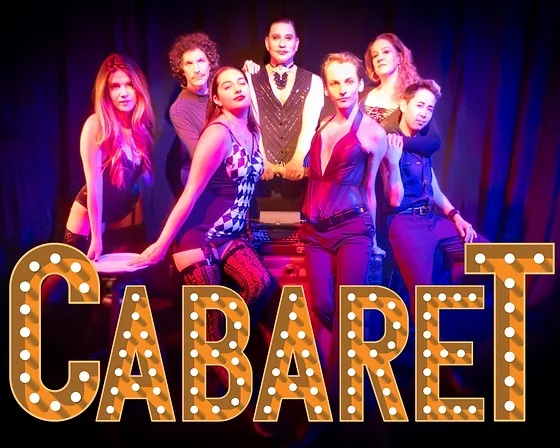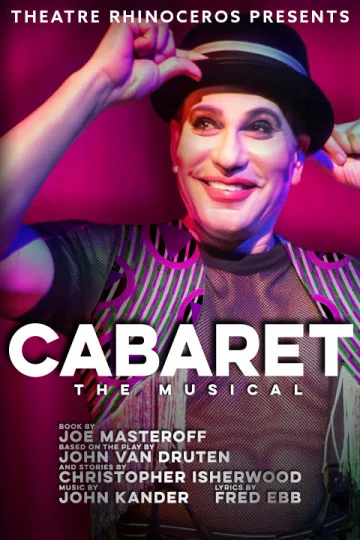This piece, which draws on an interview conducted in early October, 2024 was originally published on November 4, 2024, the eve of the Presidential election. It contains an interviewee’s prediction of the next day’s results which, alas, proved wrong.

Spooky season has been extended again this year.
As in 2016 and 2020, San Francisco’s collective mood has darkened in the wake of Halloween and on the brink of national regime change.
Daylight savings time has ended, and perhaps the end times are upon us.
It feels like a long time since early October, when the Bay Area Reporter spoke with John Fisher, the Artistic Director of Theatre Rhinoceros, about the company’s upcoming production of “Cabaret,” which begins a four weekend run in the Castro on November 21.
“I think that people will be feeling the bliss of having elected our first female president,” said Fisher, looking ahead toward opening night from a stint in New York City.
“Americans are funny. They say all kinds of things, but they don’t really mean them. They say, ‘I’m moving to Europe if Trump wins.’
“I don’t buy it, and I think it’s a waste of time saying it. We figured out Covid. We got through the first Trump administration. And now I think we’re going to have a president with a rich connection to San Francisco; someone with an alternative cultural status.”
But the month has felt like an epoch. October came in like a breeze through coconut trees and out like a lyin’ roar.
Was our liberal sugar high a hallucination? A wishfully artificial intelligence?
Past as prologue

John Fisher argues that “Cabaret” is a show that meets our moment, regardless of the election’s outcome. It’s a meta-musical about the ways we use entertainment for self- and social deception. A song-and-dance distraction from the sinister creep of fascism.
“I’m not one of the people who thinks Trump is a Hitler,” said Fisher. “I think that’s an underinformed judgement. But I do understand that people are afraid of the direction this country is headed. And I think the message of the show is that we need to stay engaged.”
However wise about Weimar “Cabaret” may be, its insights were gleaned only in hindsight. songwriters Kander and Ebb, book writer Joe Masteroff, and director Hal Prince—who conceived the show’s cunningly self-aware narrative structure—delivered their Tony-winner in 1966, more than two decades after a lack of such conscious conscience led to the death of millions of Jews, queers, and other marginalized citizens.
Even if the Rhino production opens with Kamala Harris as our President Elect, said Fisher,
“We can’t be off partying and ignoring the bigger picture. That’s a major aspect of our culture; that urgency push to not think about things but to buy things and keep ourselves entertained.”
“Cabaret” is a harbinger, wrapped in a postmortem, inside an amusement.
A Castro-scaled production
The emcee character in “Cabaret,” famously played on Broadway by gay actors Joel Grey, Alan Cumming, and currently Adam Lambert, is a Roy Cohn Harlequin, addicted to the spotlight, strategically silent.
At the Rhino, excellent company veteran Rudy Guerrero (Mitzi in “Priscilla Queen of the Desert”) will take on the emcee role as part of a cast of seven, the rest of whom will double as primary characters and Kit Kat Club performers, further compressing the work’s show-within-a-show conceit.
Also compressed will be the show’s performance space. The Rhino’s tiny 18th Street theater is closer in size to the sort of louche underground club portrayed in “Cabaret” than the grand venues its most celebrated productions have played.
“There’s not a whole lot of room for the actors to be ‘off stage’ in the Castro,” said Fisher. “But that’s fine. The experience becomes extremely intimate. It’s so rare to do a musical where you can hear singing without the need for amplification.
“The space is also very true to the Berlin of the story. The Kit Kat club is not Broadway. It’s a small place. These are small, real lives.
“The problem the characters in this community have is that while they’re pretty good at performing, they’re much more dysfunctional when it comes to dealing with real life.”
